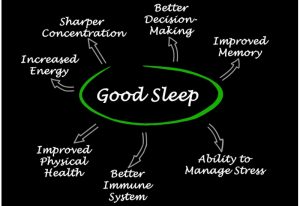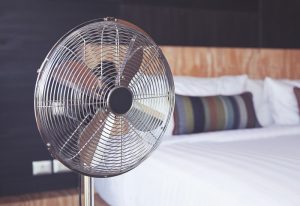Getting seven to eight hours of quality sleep each night is essential for several reasons other than just providing the body with an opportunity to rest. Research finds that sleep boosts immunity, suggesting the quality of sleep we get each night is vital to our ability to resist infectious diseases.
What Happens When You Sleep?

Additionally, toxins are processed and sent through your gastrointestinal system, so they can be dispelled upon waking. Throughout your body, hormones and proteins are also produced during the night to help your body repair damaged cells.
All of this suggests that the mind and body require sleep for a wide range of reasons. Since our bodies are made up of trillions of cells, it doesn’t seem unreasonable that we need to spend one-third of our time sleeping. This downtime gives the body time to repair damaged cells in the brain and throughout the body. The process of cellular repair and rejuvenation that occurs each night has prompted some scientists to research how sleep is related to the functioning of the immune system.
Research Finds Sleep Boosts Immunity
A study conducted at Germany’s University of Tübingen found that the times we sleep are just as important as how much we sleep. The researchers found that those who slept during the day as a result of working evening hours had weaker immune responses than those who slept during normal evening hours. Not only did the day-sleepers exhibit lower T cell counts and more inflammation than those who slept at night, they also produced lower levels of anti-inflammatory cytokines.
These findings weren’t altogether unsurprising, because we know that our bodies rely on the circadian rhythm to function properly. This biological clock regulates various functions throughout the body and is managed by the presence or absence of daylight, among other cues. In this study on how sleep boosts immunity, it was found that the immune system releases more T cells at night when we’re asleep, but, if that sleep cycle is disrupted, the immune system’s release of protective cells will also be inhibited.
Sufficient Sleep Protects Against Health Threats
As mentioned above, the immune system releases anti-inflammatory proteins called cytokines, which help fight off infections or illnesses. If you don’t get a sufficient amount of sleep, your body can not release adequate levels of these proteins, leaving you vulnerable to infections, inflammation and increased levels of stress hormones.
While we sleep, T cells make their way to the various lymph nodes throughout the body. Once they make it to the lymph nodes, these T cells are reset and programmed to attack specific areas where infection or inflammation have been detected. When sleep is disrupted, the T cells aren’t utilized properly by the immune system. This leaves the immune system unable to recognize foreign invaders previously encountered by the body, resulting in a weakened, or delayed, response to the threat.
As this research suggests, there are various ways that the immune system relies on the sleeping state to protect against health threats. The immune system specifically depends on sleep that takes place at night, in conjunction with the circadian rhythm, because it’s busy protecting the body in other ways during the day.
For this reason, an abnormal sleep cycle, or prolonged sleep deprivation, will inhibit the functioning of the immune system. This is why people who have trouble sleeping are more likely to catch a cold, contract the flu or experience chronic health issues. An inhibited immune system will also make you more likely to suffer from obesity, diabetes, heart disease and other medical conditions.
How Can You Sleep Better?
There are many factors that can affect sleep quality. These simple diet and lifestyle changes could make or break a good night’s sleep.
Update Your Bedding
Whether or not you limit your furniture budget in other areas of your home, you should pamper yourself when it comes to your bedroom. This may require investing in a new mattress if your current mattress is worn and the springs no longer provide adequate support. Also consider buying bigger pillows and softer sheets and blankets.
Cool Off

Log Out
Your circadian rhythm can be affected by artificial light, so your inability to sleep may be linked to your use of your mobile devices. Experts recommend turning electronics off at least one hour before bed so your brain has the ability to adjust to the evening’s lack of light.
Check Your Caffeine Intake
Whether you’re a coffee drinker or prefer soda, you should stop drinking your beverage of choice at least six hours before bed. It will take that long for your body to process the last of the caffeine, so it won’t keep you awake through the night.
Relax
Finally, choose a before-bedtime activity that you find relaxing. This can be as simple as meditating to soothing music or reading a good book, but it can be anything that you personally find relaxing. If all else fails, take a warm bath just before you slip into bed.







